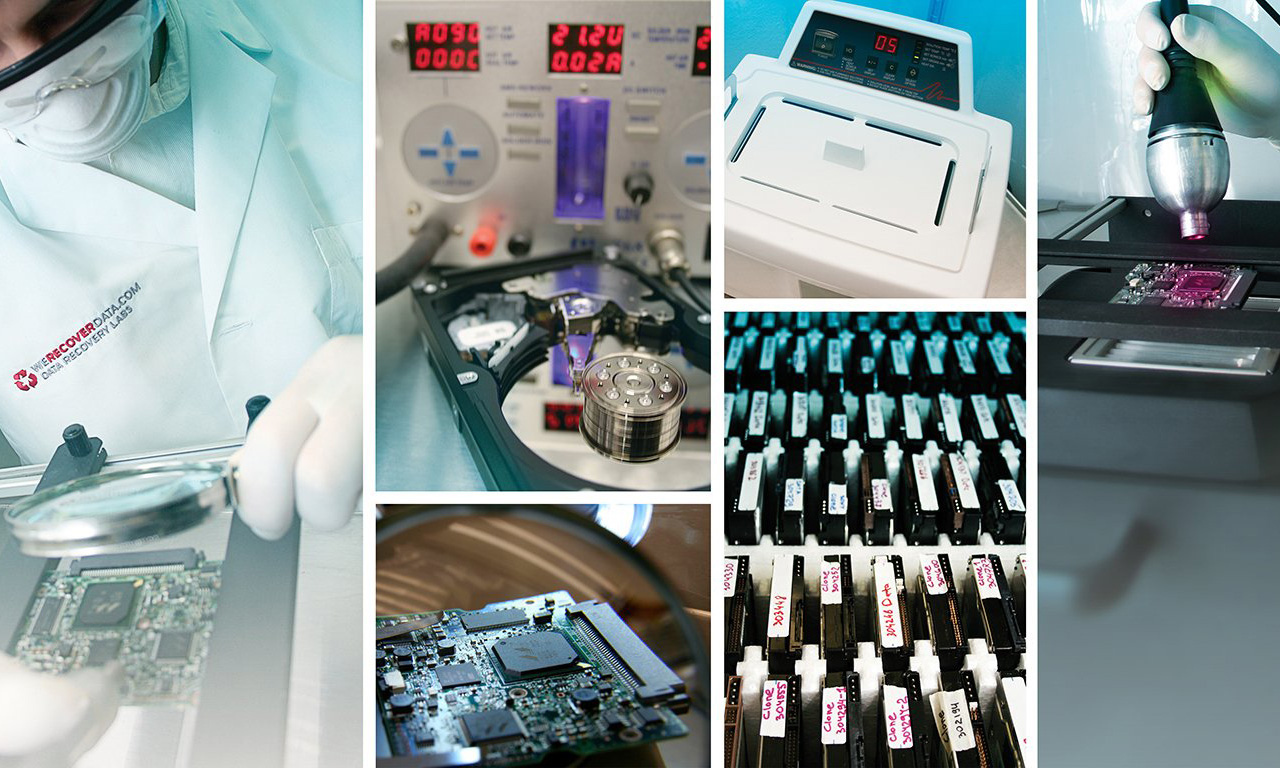Top Benefits of On-Premises Enterprise Data Storage for Organizations
By Tom
Your data is the lifeline of your business. No matter what industry you are in or even if you are just starting out, sensitive information must be stored and protected to ensure the success and safety of your organization. From the government to educational institutions, healthcare sectors and down to small and large companies from different industries, everyone knows how important it is to store valuable data in a secure environment. As an organization grows, the need for enterprise data storage solutions also grows. It becomes even more challenging to ensure that your company’s data can be easily stored, accessed and protected. Fortunately, tech experts and geniuses do not stop in finding out ways to battle the ever-increasing data storage requirements. Various breeds of enterprise data storage devices and solutions are available on the market and all you have to do is to choose the one that best fit the needs of your company.
Enterprise Data Storage: An Overview
By definition, enterprise data storage is a smartly designed product or service that aims to assist business and organizations when it comes to storing, managing and retrieving digital data. It can hold large volumes of information and can be utilized by multiple users. Large companies and institutions can benefit a lot because enterprise data storage can handle loads of data up to 300 gigabytes. This is possible even without creating a subsystem as the main system is heavily engineered to support and connect to platforms in operation without limits. Moreover, this storage solution doesn’t require excessive cabling.
Usually, enterprise data storage uses centralized repositories. Generally, there are three types of enterprise data storage your organization can consider:
Storage Area Networks (SANs)
A storage area network is considered a universal solution for businesses and enterprises. It can connect to servers, computers and other storage devices. If your business has a high-demand, then SAN is one of the most scalable solutions to your storage requirements. Offering a high storage capacity, it can easily meet the growing demands of your applications. Moreover, by utilizing a storage area network solution, your organization wouldn’t need multiple servers for storing and handling massive amounts of data. You can easily access and manage your information with its centralized data management feature. Retrieving digital information should anything happen wouldn’t be a problem as well as SAN comes with a reliable data backup function.
There are two main types of SAN infrastructure. First is the iSCSI which runs at 1Gbit or 10Gbit. The second is the Fibre Channel. It runs at 2Gbit or 4Gbit in general.
SANs’ storage capacity can be easily expanded because all servers share the same pool of reserved resources. Adding storage capacity is cheaper and faster than the other following types as well.
Network-Attached Storage
With its flexibility and affordability, network-attached storage devices are increasingly becoming the top choice for small and medium businesses. This storage device connects to a network for data storage which can be accessed by authorized clients and users. It also allows the information to be retrieved from a central location. As your storage requirements grow, you can conveniently add storage capacity as you wish. Aside from being a reliable, flexible and low-cost storage solution, network-attached storage devices also give you complete control over your data. Moreover, you don’t need to be an IT professional as it is very simple to operate.
Direct-Attached Storage
DAS is a type of enterprise data storage that is attached to a server directly. This solution comes in different forms such as SCSI, SAS or SATA disks. These disks have rooted array controller. The redundant data of your organization can be easily obtained either by the use of software RAID which is being run by the operating system or by a hardware-level RAID which is administered by the disk controller. While it’s true that DAS is generally the cheapest option available for enterprises, you must first be aware of its features which are often deemed as disadvantages.
Usually, DAS has a maximum storage capacity of up to 300 GB. While it may seem a lot at first, this can easily get full especially if your business is growing at a fast pace. Most servers provide two disk slots which mean your storage space is very limited. If you opt to use disks with smaller capacity, you have to deal with the hassle of increasing your storage space as required by the flow of your data in the long run. It is also time-consuming as before you redeploy the new disk, you must ensure that the entire system is already backed up.
However, if your organization needs a hosting for the operating systems as well as a swap space, device-attached storage will be a great choice because of its speed, accessibility, and high bandwidth.
Top Go-to Vendors for Enterprise Data Storage Solutions
All businesses and organizations, from small to medium and large, can choose from a huge array of enterprise data storage available on the market. But if you’re an amateur in the industry and you don’t know where to start, perhaps knowing the top companies which provide data storage solutions can help. Whether you are thinking of going after SANs or you are more convinced that a NAS device would be more helpful, get to more about the following before you take your pick.
Let’s dive in!
Dell EMC
If you’re fully aware of the data storage industry, then it would be impossible not to know or heard about Dell EMC. For the experts, the enterprise data storage industry wouldn’t be complete without mentioning this company. In 2016, the merger between Dell and EMC has rocked the world. Well, the popular pc maker and server company has joined hands with one of the giants in data storage, who in the tech world wouldn’t be delighted? The $67 billion merger allowed the new company to dominate the market for enterprise data storage systems. Dell EMC provides the arrays essential to SANs and NAS devices. They have also released a variety of models which can support double duty. Among the most notable products of Dell EMC are the SC series, Isilon NAS storage, hybrid-flash storage and a line of VMAX products.
Hewlett Packard Enterprise (HPE)
The joint venture between Hewlett Packard Enterprise and the New H3C Group has impacted the performance of Dell EMC in the overall market in terms of enterprise storage systems. However, HPE still falls behind one of its greatest rivals in terms of the traditional storage. Among the most notable products of the company are HPE StoreEasy for NAS systems, HPE 3PAR StoreServ with midrange arrays and MSA Storage which is flash-enabled ready.
NetApp
NetApp has been making headlines with its NVMe-Over-Fabrics. This enterprise data storage supports its flash arrays products and also offers support for cloud data in its ONTAP storage software.
IBM
This company is no different from other data storage vendors when it comes to embracing the flash function in its arrays. Also, the company aims to push its performance envelope by making a big push into its NVMe-based data storage products.
Hitachi Vantara
To be able to increase its performance when it comes to enterprise data storage, big data analytics, data integration and the Internet of Things, Hitachi has decided to combine its Data Systems with Pentaho, along with the Hitachi Insights Group last September 2017. The goal is to form a subsidiary that will focus more on delivering innovative and cost-effective solutions to businesses. The G Series arrays and Hitachi NAS Platform carry the HDS storage systems.
Huawei
According to IDC, Huawei is dominating the market at a fast pace. This Chinese tech company offers an all-flash OceanStor Dorado V3 arrays. This product is supported by NVMe technology. Also included in its product portfolio is the OceanStor 18000 V5. Large companies are giving positive reviews for these hybrid-flash storage systems.
Other Data Storage Companies to Get to Know Today
While the following companies might not be the first to come into your mind when it comes to enterprise data storage, these businesses are well-versed in the industry and they are dramatically creeping to the center of the spotlight.
Oracle
Oracle is famous for its ZFS Storage. The company’s legacy is backed up by Sun Microsystem, StorageTek archival tape systems, and Zero Data Loss Recovery Appliances. Moreover, Oracle offers to the market databases for business and software-related products.
Lenovo
Although you might remember the company for reselling its IBM Storwize arrays and for joining with EMC, Lenovo is once again trying to stand on its feet by releasing S3200 SAN hardware and Lenovo Storage S2200.
Fujitsu
Presenting its portfolio of products under the ETERNUS banner, Fujitsu is known in the business for offering storage solutions that support the entire lifecycle of data. The company also offers software-defined storage, arrays, tape libraries, and backup appliance.
Western Digital
If you’re after hard drives, then surely you need to check out Western Digital. The company’s subsidiary, Hitachi Global Storage Technologies, also offers Ultrastar which are systems for data center storage.
Storage Companies with Strong Focus on Flash-enabled Arrays
Surpassing the traditional storage systems which are usually disk-based, the following companies focus their efforts on enterprise data storage with flash-enabled arrays. They aim to improve database performance as well as to set new application standards.
Pure Storage
With no spinning platters on its products, Pure Storage brags itself as an all-flash purist. Today, the company makes a buzz in the industry with its FlashArray//X. This data storage system is embedded with NVMe SSDs.
Violin Systems
Previously known as Violin Memory, Violin Systems is among the first vendor to take its toll on all-flash in the data center. The company had experienced bankruptcy but had bounced back and made a name for itself once more by offering Flash Storage Platform arrays with high-performance. Violin Systems also targeted the modern-day workloads by offering management software products.
Tegile
Although under the wings of HGST which had made it on the upper part of the list, Tegile manages to make a separate name for itself—thanks to the company’s all-flash and hybrid storage systems. Their line of products includes NVMe-based arrays as well as IntelliFlash N Series.
Kaminario
Kaminario is one of the most popular all-flash data storage vendors in the market. The success of the company is made possible by their efforts of delivering storage software that is, of course, flash-friendly. At the beginning of 2018, the company announced that they will be shifting their focus on providing SDS solutions to enterprises of all sizes. This decision means Kaminariohas to leave its hardware side of the business to Tech Data.
Top Companies Offering Hyper-converged Storage
While more and more enterprise data storage vendors are shifting their focus to hyper-convergence, the following companies have already placed their bets early in the game. But first, let us define hyper-converged storage. Dramatically taking the data storage industry by storm, hyper-converged storage offers unrivaled flexibility when it comes to running and managing massive storage workloads. This function is made possible by the combination of storage, computing and networking all packed into immensely-virtualized systems. Today, they are some of the most popular go-to companies for this innovative storage trend.
Nutanix
Software available in hardware appliances, Nutanix can be used by organizations simply by installing it on their systems. The product enables SDS in the data center and it supports a variety of data storage services such as virtual machine, container, block and file. It also comes with a feature for disaster recovery and backup.
Pivot 3
Pivot 3 aims to accelerate data storage workloads with its hybrid flash and flash HCI systems which support a number of beneficial data services. An enterprise can benefit a lot from erasure coding, thin provisioning, asynchronous replication and more. Pivot 3 is also proud that its high-end products are packed both with conventional SSDs and NVMe SSDs.
HPE SimpliVity
SimpliVity is now owned by HPE. However, it is worth mentioning that this company had made headlines early in the game with its OmniCube. The innovative building blocks made it possible for a massive pool of enterprises to propel their business to success with the help of a software-defined data center.
How to Choose the Best Enterprise Data Storage for your Business
Are you a business owner who’s struggling to manage the ever-growing requirements of data storage? If this issue continues to frustrate you, it can have a negative impact on your organization. This means this can affect your journey to success. As the business landscape becomes more and more competitive and dynamic with each passing day, knowing how you can deal with your data storage requirements must be one of your top priorities.
Here are some key insights to ponder:
Your organization must evaluate the data storage problem from different aspects.
Based on a Study conducted by Computer World, the majority of IT Managers struggle to balance their priorities. From workloads to schedules, budget, security and storage performance, failing to focus even on a single area can cause troubles when it comes to defining the company’s data storage requirements.
You must be aware that there is no such thing as “one-size-fits-all” enterprise data storage solution.
With the hopes of getting cost-effective solutions, most organizations, even the large ones tend to go after a single approach when it comes to keeping and managing their valuable data. As a result, most companies fail to select the right storage tier for their critical applications. In 2017, several studies showed that businesses can benefit better by using a combination of media types which easily meet their diverse data storage needs. Moreover, this strategy proves even more cost-effective in the long run.
Your organization must let go the copies of redundant data.
As enterprise data storage solutions are being made more and more affordable even to small businesses, most organizations tend to overlook data redundancy. But as the amount of your data continues to grow, this limiting this practice must be one of your biggest concerns.
Protecting your data must not be an afterthought.
Most companies think that having a backup strategy is a completely separate component from data storage. Oftentimes, the primary storage is being used for the primary applications while the secondary storage is reserved for backups. When an issue arises, we tend to solve the application-related issues to gain better performance while completely ignoring the backup and recovery components.
Consider the Roadmap of your Organization
When it comes to choosing the best enterprise data storage solutions for your business, you must consult your stakeholders first. Most of the time, companies are falling victims to data storage requirements because of their short-term planning. In case there is someone in your organization who visualizes analytics projects in the future, then the need for data storage infrastructure which can support this vision strongly make sense. If you don’t want to experience the hassles of upgrading data storage from time to time, forecasting your needs early in the game is a must.





















Great company!
I think it is the best company in the world regarding data recovery. They take all types of recovery cases with great responsibility and ensure they work with the best possible solution for your specific case. I highly recommend it.
Superb effort
Superb effort from werecoverdata. I had no idea how to fix it when I faced a horrible problem with my RAID NAS. But they solved it very quickly and superbly. I recommend them!
Fantastic results
Thanks to all staff of werecoverdata for excellent work and for getting my company data back! I got frustrated when a deadly drop damaged my hard drive. But they solved it!
Thanks
Few days ago my raid server is crashed dangerously. It was not starting any more. I tried in a various way whatever I know but I could not fix it. My uncle told me about WeRecoverdata. Then contact with them and they repaired it. Thank you guys.
Recover service
Those are suffering bad experience of getting a reliable and professional recovery service provider, definitely, they can choose werecoverdata. I highly recommend it.
Thanks a lot
The location is a bit hard to find out but eventually, I did. They recovered my hard drive, which was mostly dead. Thanks a lot.
Great response
Definitely weRecover team is great to solve that kind of hard drive problem. Great response and remarkable. They recovered my all data successfully within short time. I wanna give special thank to David. Thanks a lot man.
Liked Your Service
I have been using my HP laptop since 2016. Few months ago I could not open my laptop. After pressing the power button its showing nothing. My friend told me about that company. They recovered my laptop. Now its working perfectly. Thanks a lot WeRecoverData.
Pretty good experience
It was really pretty good experience. They are so professional, punctual and reliable. I strongly recommend it.
Remarkable Work
A lot of thanks to werecoverdata. You did really remarkable work. I was frustrated when lost my important data from a hard drive. I sent my hard drive to WRD then they got all the data back. At first, I couldn’t believe anyone can recover it since my computer tech said he can’t do it. All credit goes to werecoverdata.
Gorgeous service
Fantastic service from all the guys at werecoverdata. I was having pressure when corrupted data from my hard drive .Then I went there and they fixed it superbly.Thanks for removing the pressure!
Extremely well
I faced horrible problem but they solved it extremely well.My problem was that hard drive crashed dangerously.At this moment I thought the sky was broken on my head.Thank you for that.
Sensible
Thanks to WeRecoverData. You fixed the hard drive problem promptly. I am impressed… Anybody can rely on werecoverdata.
Well done
Thank you
Great work
Obviously great work from werecoverdata.Definitely no doubt about this company because they take seriously to solve any kinds of problem.I have lot of assurance at them.A lot of thanks to them.
Fantastic work
Oh Tom really fantastic work. You saved my important days. Raid 5 server damaged dangerously few days ago. But you fixed it well. Thank you for that!
Great efforts
All credits goes to werecoverdata for recovering raid server.I thought impossible to repair it but they was taken sensible and fixed it.Now I can fully trust on werecoverdata.All thanks to them.
Helpful Work
Werecoverdata, you did a really very helpful work.I was angry when my hard drive got dropped from my mistakes. I recommend the company and give a lot of thanks to werecoverdata.
Best service
After my hard drive crashed I was going to be totally mad. One of mu cousin suggested me to meet that company. I did and got the best service ever I had.
Remarkable Job
AWESOME service from WeRecoverData. I was almost mad when my pc crashed. A lot of valuable data in my hard drive. One of my friend recommend it. I thought it will not be possible.
But after all I got back my all data. Thank You WeRecoverData.